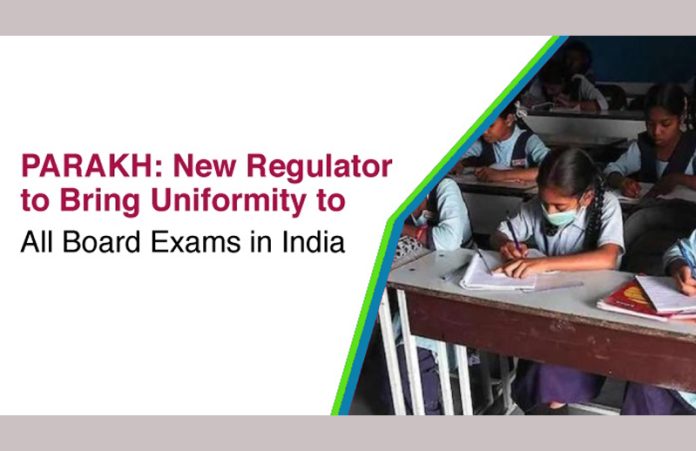NEW DELHI, Feb 22: Conducting the National Achievement Survey (NAS) and the Foundational Learning Study (FLS), aiming to adopt international standards to further refine assessment methods and expanding stakeholder capacity building are among the plans of national assessment regulator PARAKH for 2024.
Performance Assessment, Review and Analysis of Knowledge for Holistic Development (PARAKH), which completed its first year this month, is tasked with framing assessment guidelines for all boards to help remove disparities in the scores of the students enrolled with different state boards.
“As it moves into its second year, PARAKH is focused on preparing for the National Achievement Survey (NAS) and the Foundational Learning Study (FLS) in 2024, aiming to adopt international standards to further refine the assessment methods and expand stakeholder capacity building,” said Amit Sevak, CEO of the US-based Educational Testing Service (ETS).
ETS, which conducts key tests such as TOEFL and GRE, is the technical partner of the National Council for Education Research (NCERT). It was chosen for setting up the regulatory platform and assisting PARAKH in achieving the goals.
“The initiative’s roadmap promises continuous improvement of educational assessments, aiming to inspire the evolution of India’s education system to meet global standards,” Sevak said.
The last year saw PARAKH establishing a comprehensive framework for student assessment across India’s school boards, conducting the First State Educational Achievement Survey (SEAS) that involved more than 84 lakh students in literacy and numeracy assessments across 19 languages, thus setting a new precedent for educational surveys in India.
The NAS, which assesses the competencies developed by students at the grade levels of third, fifth and eighth, is conducted every three years.
The FLS is a school-based performance-assessment module. Selected samples of children from a chosen grade are assessed by a test administrator in a one-on-one setting where each child responds to a set of questions administered orally. Several foundational literacy skills, including oral-language comprehension, phonological awareness, decoding, reading comprehension and oral-reading fluency with comprehension, are assessed as part of the exercise.
For foundational numeracy, number identification and comparison, number operations, multiplication and division facts, measurement, fractions, patterns and data handling are included.
“Earlier this month, PARAKH made a presentation showcasing the roadmap for improvement in the learning outcomes, based on competency-based assessment envisaged in the NEP-2020. It includes creating an equivalence amongst all state school boards and for this, an interface has been created with the boards and respective state governments and SCERTs,” said Sanjay Kumar, School Education Secretary.
“The successful conduct of the state achievement survey in 2023 was discussed and its preliminary results were shared. I am sure that transformation in assessment processes, along with equivalence in state school boards, would manifest itself in the NAS learning outcome scores,” he added.
The report of the state achievement survey is yet to be released. Indrani Bhaduri, who heads PARAKH, said, “Learning assessments need to be made meaningful and relevant for the students and this can happen only through a participatory approach.” (PTI)
Trending Now
E-Paper


